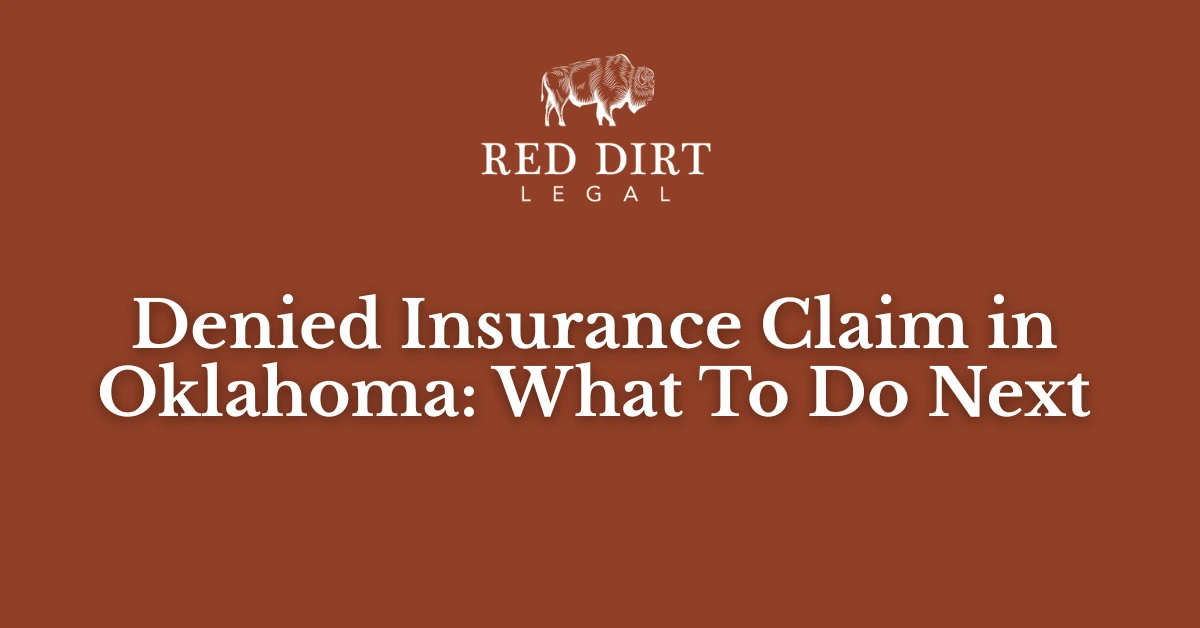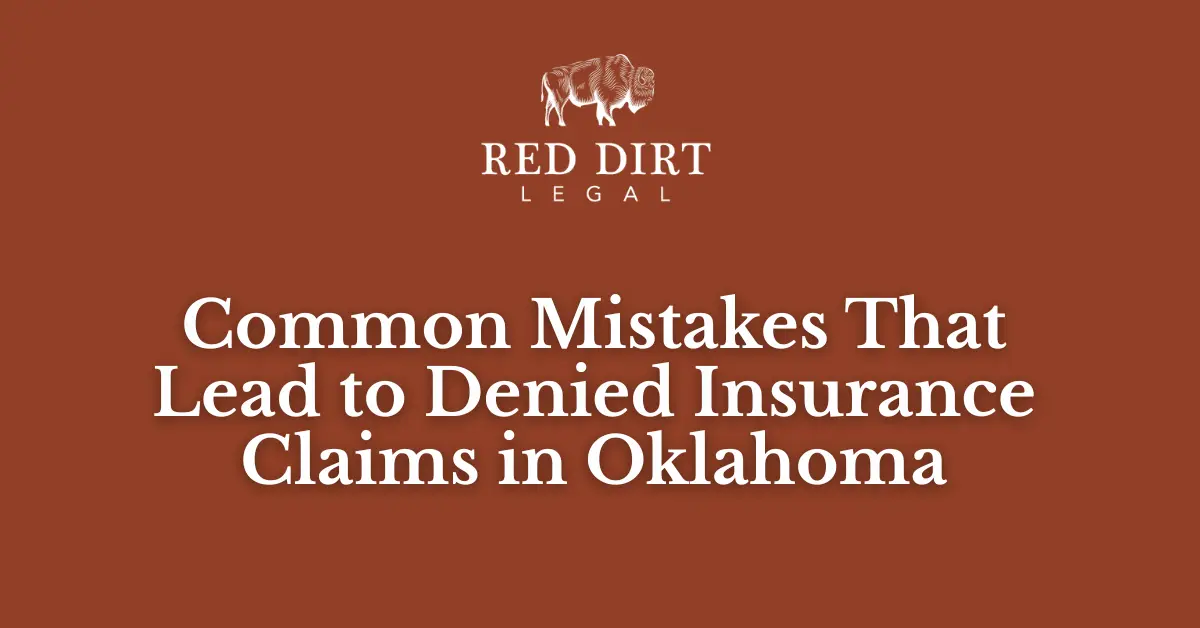After storm damage, fire, or another serious property loss, Oklahoma business owners expect their commercial insurance to provide a lifeline. But too often, the relief that comes is less than expected, and in many cases, far less than what’s actually needed.
Unfair settlement offers from insurance companies are a common problem. Whether the payout is too low, delayed, or based on a questionable interpretation of the policy, business owners have rights.
At Red Dirt Legal, we’ve helped businesses across Oklahoma handle disputes with insurers that aren’t offering fair compensation. Here’s what you need to know if you’re facing an offer that doesn’t reflect your actual losses.
What Does a “Low Settlement Offer” Actually Mean?
Insurance companies aren’t required to pay whatever a policyholder asks, but they do have a duty to act in good faith. A low settlement offer might:
- Use outdated or inaccurate repair pricing
- Ignore parts of the damage
- Rely on restrictive or debatable policy interpretations
- Exclude important costs like business personal property or cleanup
- Disregard income losses from downtime
These tactics can lead to underpaid claims that leave business owners without the resources to fully recover.
How Do You Know If the Offer Is Unfair?
Not every low offer is intentional. Sometimes adjusters miss information or rely on flawed estimates. But in many cases, signs of a deeper issue include:
- Pressure to accept quickly or waive future rights
- Vague or inconsistent explanations for the amount offered
- Denial of parts of the claim without full documentation
- Refusal to consider third-party estimates
If something feels off, it probably is. A second opinion from a lawyer experienced in commercial insurance claims can help you understand your options and determine whether the offer is truly fair.
What Are Your Rights Under Oklahoma Law?
Oklahoma policyholders have legal protections when dealing with insurance companies, especially if the insurer acts in bad faith. You have the right to:
- A fair and timely review of your claim
- A written explanation for any denial or underpayment
- Challenge or dispute the settlement offer
- Submit additional documentation or request a reinspection
- File a complaint with state regulators if necessary
In cases where an insurer unreasonably delays, underpays, or misrepresents coverage, legal action for bad faith may be an option.
Common Disputes Over Settlement Value
Some parts of a commercial insurance claim are more prone to disagreement. These include:
- Roofing and structural repairs after wind or hail
- Inventory or equipment value based on replacement cost vs. depreciated value
- Business interruption coverage, especially how long it’s supposed to last
- Water or mold damage where the source is contested
If your settlement doesn’t reflect the real cost of recovery, and the insurer won’t budge, it may be time to reevaluate the claim with a detailed review by an attorney who understands commercial policies.
What You Can Do Next
If you believe your settlement offer is unfair, you don’t have to accept it. Here are some practical steps to take:
- Get a full copy of your policy and read the sections related to coverage limits, exclusions, and conditions
- Gather estimates from local contractors to compare with what the insurer provided
- Keep detailed records of communication with the insurer, including emails and call logs
- Document all damage thoroughly, even after temporary repairs
- Submit written objections or requests for a second evaluation, if allowed
Delays and low offers are common causes of insurance disputes, especially after widespread storm events. Having strong documentation can help shift the balance.
You Don’t Have to Settle for Less Than You’re Owed
Facing a low settlement offer can feel like a second hit after an already difficult loss. But Oklahoma business owners have tools and rights to challenge unfair outcomes, and many times, even the threat of a formal dispute is enough to get insurers to reconsider.
If your commercial claim has been delayed, undervalued, or brushed aside, contact Red Dirt Legal to learn how you can protect your business and fight for the coverage you paid for.
FAQ:
1. What should I do if my Oklahoma business received a low commercial insurance settlement offer?
Start by reviewing your full policy, gathering repair estimates from local contractors, and documenting all damage and communications. If the offer doesn’t reflect the true cost of your losses, you may have grounds to challenge the settlement under Oklahoma insurance law.
2. Can I dispute a commercial property insurance payout in Oklahoma?
Yes. If you believe your commercial property claim was underpaid or partially denied, you have the right to dispute it. Oklahoma law allows business owners to push back on unfair insurance practices, including lowball offers and unjustified delays.
3. How can I tell if my insurer is acting in bad faith in Oklahoma?
Bad faith may include unexplained delays, failure to properly investigate a claim, or using unclear policy language to deny coverage. These are red flags that your insurance company might not be following Oklahoma’s fair claims handling rules.
4. What rights do Oklahoma business owners have during an insurance dispute?
You have the right to a timely response, a clear explanation of coverage decisions, and the ability to submit additional documentation or appeal a denied or underpaid claim. If your insurer violates these rights, you may be able to pursue legal remedies under Oklahoma bad faith laws.
5. Are business interruption losses included in a commercial insurance settlement?
Business interruption coverage may be included in your commercial policy, but it depends on your specific terms. If your insurance company excluded these losses without a proper explanation, it could be part of a broader insurance dispute involving underpayment.
6. Do I need a lawyer to challenge an unfair insurance settlement in Oklahoma?
While not required, many business owners find that working with an attorney experienced in Oklahoma commercial insurance disputes helps clarify policy language and strengthens their position when negotiating a better outcome.










